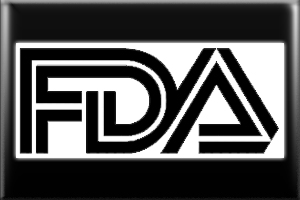The US Food and Drug Administration (FDA) has been around in some form since 1906 when President Theodore Roosevelt signed into law the Food and Drug Act prohibiting the interstate transport of “adulterated” food and drugs. It was originally a branch of the US Department of Agriculture (USDA) and its intent was to protect the health of the general public. In 1927 it was reorganized and renamed the Food, Drug and Insecticide Organization. Then-three years later-it finally came to be known as the Food and Drug Administration. 
The FDA is responsible for evaluating, approving and monitoring the foods and medicines available to the public, including overseeing the safety of food, tobacco products, dietary supplements, cosmetics, pharmaceuticals (both prescription and over-the-counter), medical machinery, vaccines and veterinary products. The FDA is also responsible for enforcing laws that have no relation to either food or drugs, such as laws concerning sanitation, household pets and sperm donation.
In theory, the FDA is supposed to prevent the sale of products that have not been tested for safety and to take legal action to stop the manufacturers from distributing products that may be harmful to health of the general public. The public should feel confident that the FDA is providing them with truthful information about the effectiveness of drugs and their potential for harmful or deadly side effects. However, the FDA’s ties to the pharmaceutical industry have been criticized as having unduly influenced the approval of drugs and medical devices that have been shown to be either unsafe or ineffective.
The main problem is described quite well on the FDA’s own web site: “The center [the FDA’s Center for Drug Evaluation and Research] doesn’t actually test drugs itself, although it does conduct limited research in the areas of drug quality, safety, and effectiveness standards.” The FDA actually relies on research performed by the drug manufacturers themselves as to the safety and effectiveness of the drugs for which they are seeking approval. Yes, the foxes are guarding the henhouse!
A number of drugs approved by the FDA have had to be recalled due to serious health problems and deaths connected with their use. Some of the recalled drugs and their associated health damage include the diet drug fen-phen (heart and lung damage), the diabetes drug Rezulin (liver failure) and the pain reliever Vioxx (heart attack and stroke). Some FDA-approved medical devices have also proven to be dangerous. For a medical device to be approved by the FDA, the manufacturer only needs to state that it is similar to other approved devices already on the market.
Many FDA scientists themselves are critical of the FDA administration and their ties to the pharmaceutical industry. Many of these scientists were dismissed when they criticized the way the FDA was run. A letter written to President Obama by a group of FDA scientists and physicians criticized the FDA commissioner, lawyers and others at high levels in the FDA, stating that they had “violated laws, rules, and regulations” and “suppressed or altered scientific or technological findings and conclusions.”
The stated purpose of the FDA is a good one and is important for the continued health of the general population. However, many people believe that its methods need a serious overhaul if this organization is to rightfully earn the public trust.
Following these procedures, drugs are continually recalled for being dangerous to the general population. Before taking a drug, it is a healthier choice to try a natural remedy before turning to drugs. From pain, to stress and anxiety, Chicago Chiropractor has a natural remedy for you to try.
